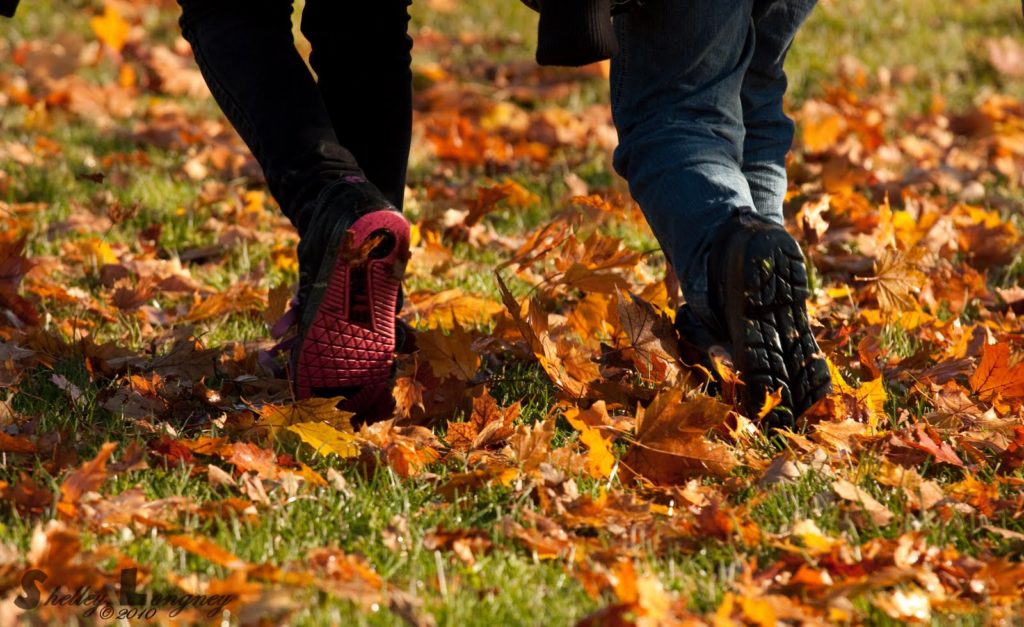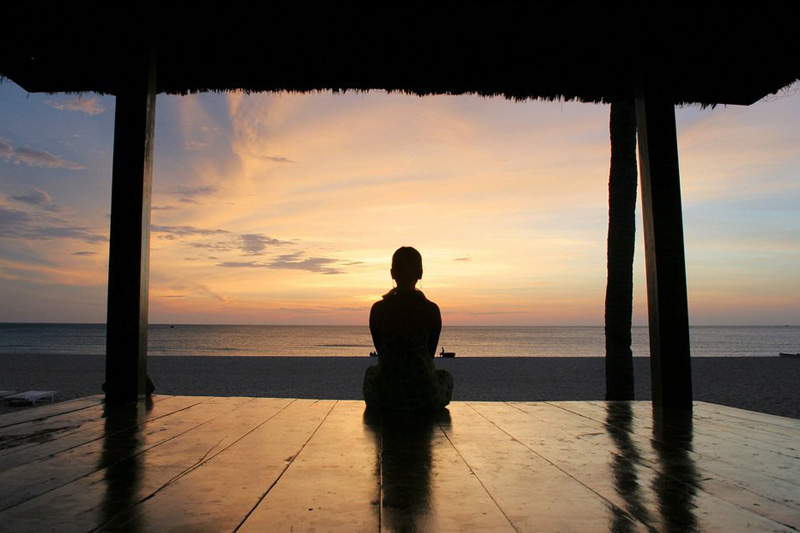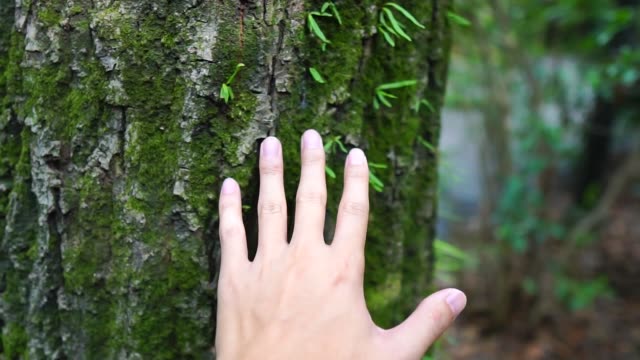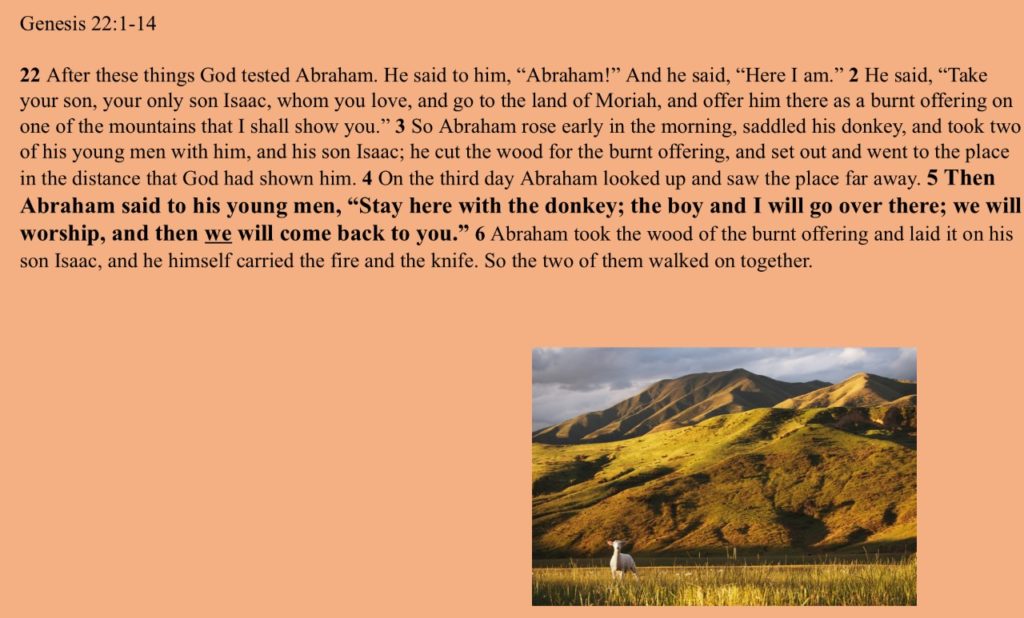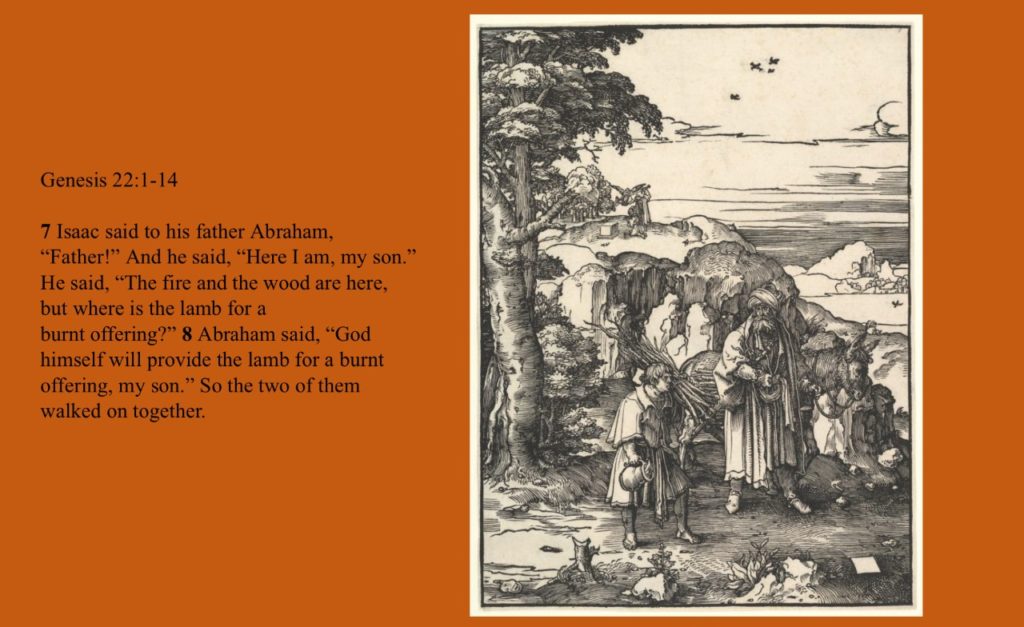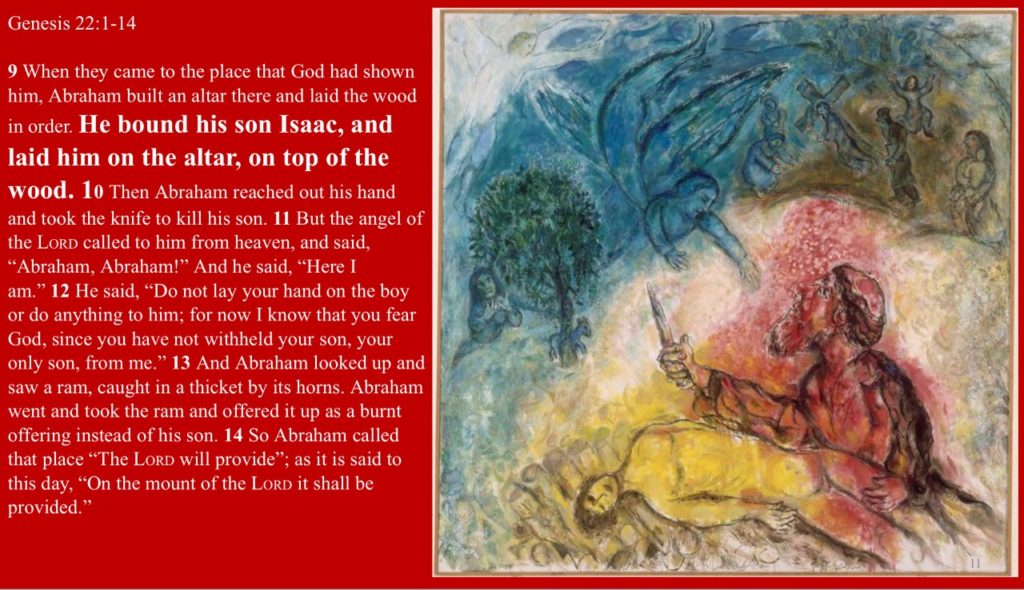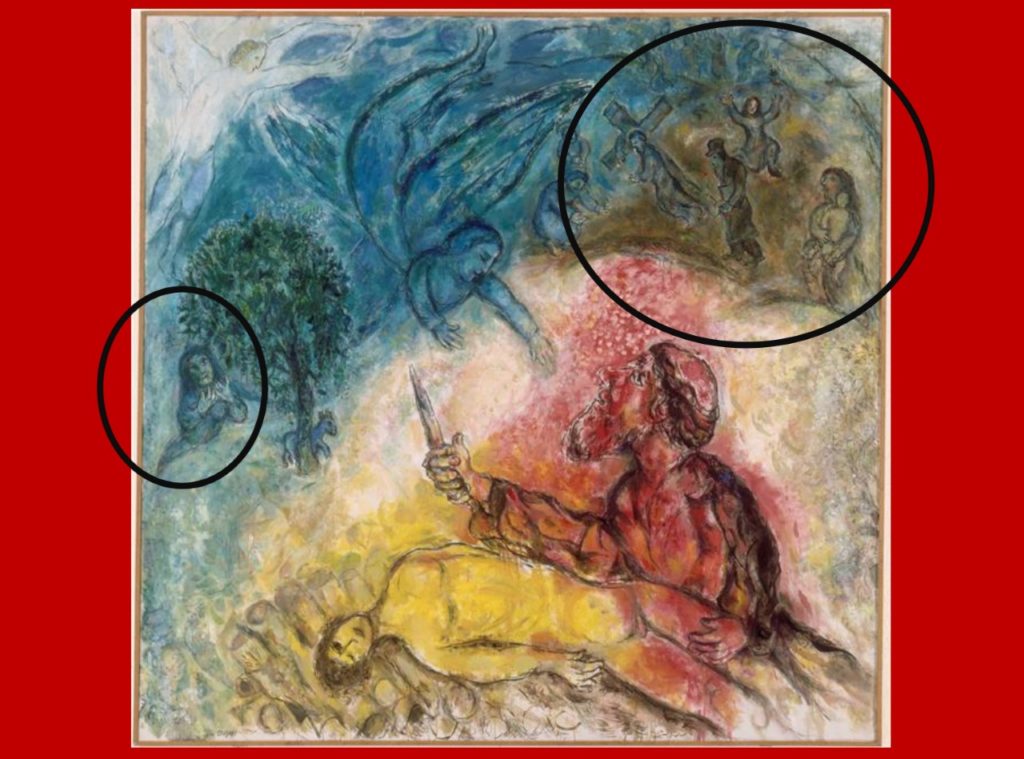
Click on the Music Title to listen via YouTube
GATHERING
A time to practice gratitude and reflect on our many blessings.
Our service will take us through four thanksgiving scriptures, each with a brief reflection in words, silence, and music.
MUSIC: Come, Ye, Thankful People Come by Choir of King’s College
OPENING PRAYER
“Give thanks in all circumstances; for this is God’s will for you in Christ Jesus.” – 1 Thessalonians 5:18
Pastor: for creation/for family/for faith…Holy One…
People: Thank You!

CONFESSION
Sometimes we can struggle to practice heartfelt gratitude.
Let us pause for a moment to put down our burdens and struggles,
That we might be free to praise God with open hearts.
PRAYER OF CONFESSION
Holy One, bind our wandering hearts to you and help us to follow your ways.
Release us from the sins that stifle our praises and dampen our thanksgiving.
Shower us with your blessings,
In Christ we pray. Amen.
As we listen to our next hymn, let us consider what draws us away from the Divine, that we might turn back and find the blessings of closeness with God.
MUSIC: Come, thou fount of every blessing by Sufjan Stevens (Click to Listen)
WORDS OF ASSURANCE:
God takes our hearts, forgives our sins, and redeems us in everlasting love.
We can look around us for evidence of God’s love and see much to give thanks for.
Perhaps one of the most frequent places of thanksgiving is the beauty of creation.
So we begin our prayers of thanksgiving with thanksgiving for creation.

GRATITUDE in CREATION
“Let the heavens rejoice, let the earth be glad, let the sea resound, and all that is in it; let the fields be jubilant, and everything in them. Then all the trees of the forest will sing for joy; they will sing before the Lord.” – Psalm 96:11-13
Creation praises God, for God has made this world and all that is in it.
We can learn about thanksgiving from the praises of creation.
Birds sing in disjointed harmony.
Trees sway and dance in the wind.
I consider my cat,
gleefully rolling in the sunlight and endlessly entertained by a little ball.
I invite you to bring to mind a being of God’s creation- the ocean, mountains, a pet, a tree.
A piece of nature that sings to your soul.
How does this creation praise the Divine?
What might it be teaching you about how to give thanks?
MUSIC: For the Beauty of the Earth by Mormon Tabernacle Choir
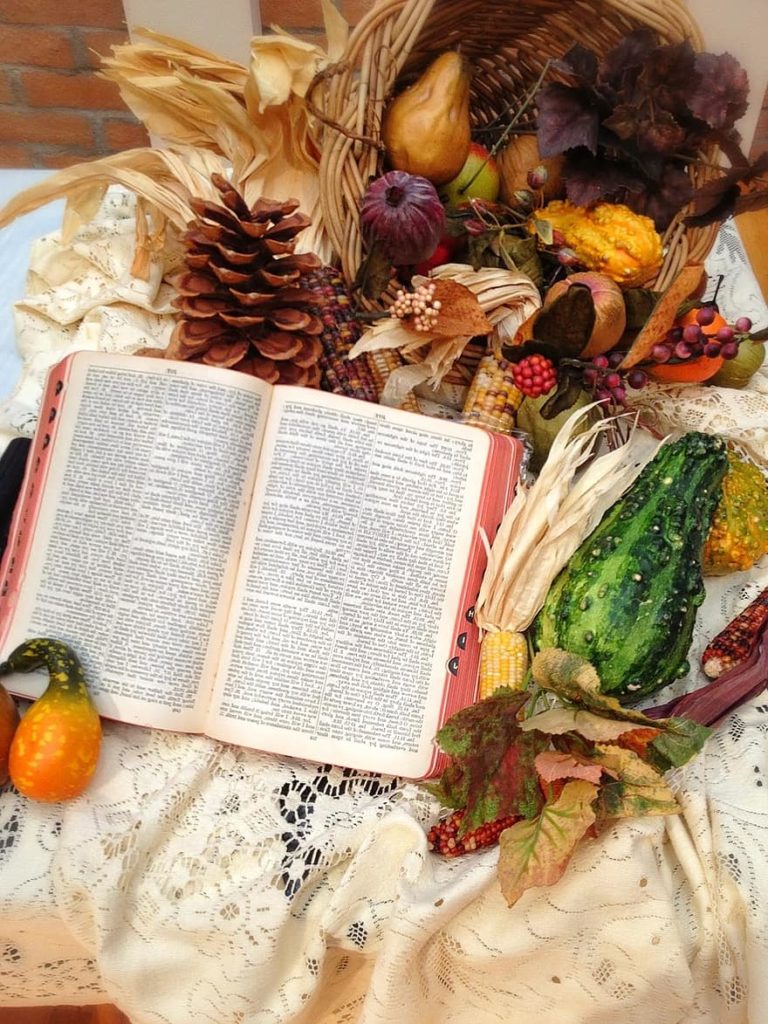
GRATITUDE in Prayer Requests
“Rejoice in the Lord! Again, I say rejoice. Let your gentleness be known to everyone. The Lord is near. Do not worry about anything, but in everything by prayer and supplication with thanksgiving let your requests be made known to God. And the peace of God, which surpasses all understanding, will guard your hearts and your minds in Christ Jesus.” – Philippians 4:4-7
The first part of this scripture is often quoted on thanksgiving cards and the like.
The full paragraph gives some context.
Paul encourages the early Christians that prayers requesting something be made with thanksgiving.
Usually when we ask for something it is because we lack something
(ex. I want to be healed for my body is sick.
I want a friend because I am lonely.)
or when we ask for something there is some bargaining involved
(ex. I’ll rub your back if you rub mine.
God, I’ll go to church every Sunday if you do this for me.)
In contrast to both of these approaches to requests,
Paul urges requests to be made in a spirit of rejoicing
(ex. God how great are your works, how beautiful your creation, how much you have loved your people. If it is pleasing to you, my heart desires to be healthy (or whatever your request might be). I pray to you for you are a good and loving God.)
What desires do you have?
How might you share them with God in a Spirit of Thanksgiving?
MUSIC: 10,000 Reasons by Matt Redman
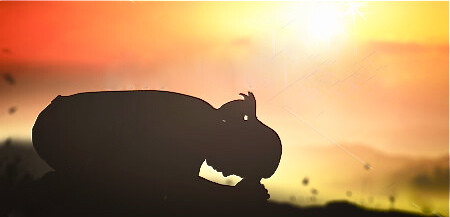
GRATITUDE in STORMS
“A great windstorm arose, and the waves beat into the boat, so that the boat was already being swamped. But Jesus was in the stern, asleep on the cushion; and they woke him up and said to him, “Teacher, do you not care that we are perishing?” He woke up and rebuked the wind, and said to the sea, “Peace! Be still!” Then the wind ceased, and there was a dead calm. He said to them, “Why are you afraid? Have you still no faith?” – Mark 4:37-40
Practicing gratitude in the storms is both the most challenging time to do so and when we need it most.
Storms can breed doubt and fear into our faith.
Storms are the winter times of our lives when we look around and see so many bare trees. Cold. Barren . Deserted.
Yet, there are already buds on the trees, preparing for the new life of spring.
Yet, the cold frost gives the plants and humans respite from many an insect.
Yet, there is a quiet calm in winter that allows creation to rest and reflect before it is reborn.
Storms in our lives often do that – force us to reflect and reassess.
What we often find is that God is present in the storms and through the winter, a shield and comfort, a shelter from the waves, a thread of hope of what will be, a mighty fortress who never fails.
Let us in the silence give thanks for how God has been a fortress in stormy winter times in our lives.
MUSIC: A Mighty Fortress is Our God by Michael W. Smith
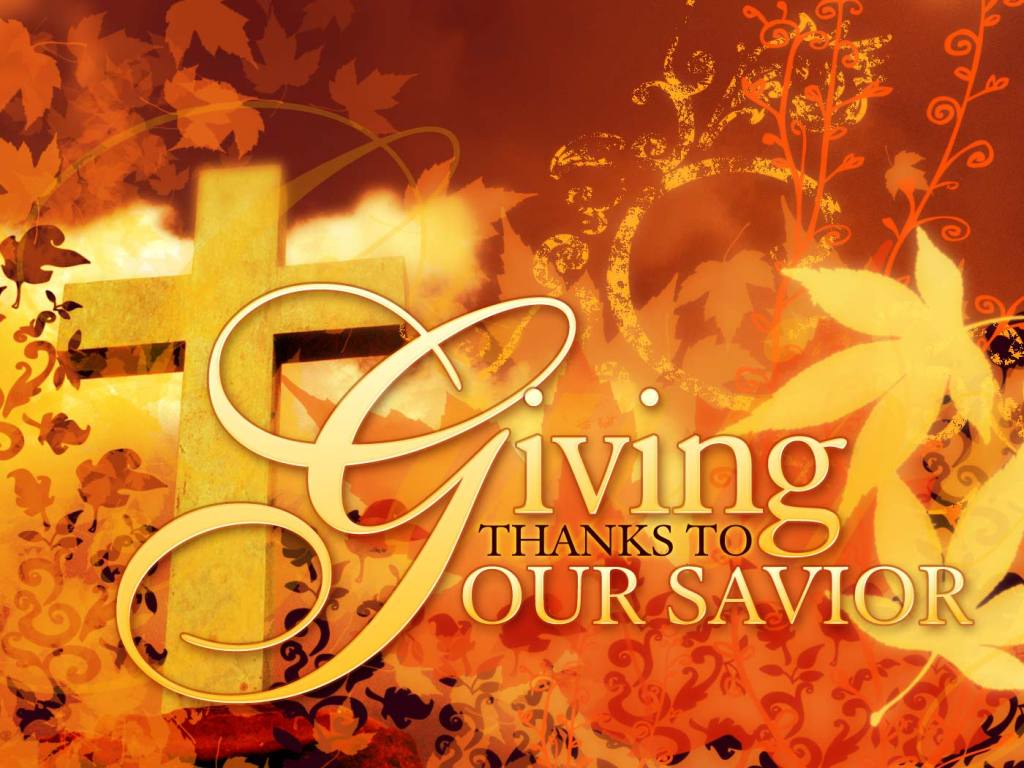
GRATITUDE in CHRIST
“This means that anyone who belongs to Christ has become a new person. The old life is gone; a new life has begun! All this is from God, who reconciled us to himself through Christ, and has given us the ministry of reconciliation; that is, in Christ God was reconciling the world to himself, not counting their trespasses against them, and entrusting the message of reconciliation to us.” – 2 Corinthians 5:17 –19
As Christians our gratitude is grounded in the incarnate God, Jesus Christ,
who walked among us, taught us, died on the cross,
and rose again to promise us new life.
My deepest moments of gratitude are most certainly resurrection moments – a blessing found after a period of despair, sadness, or loss.
The friendship reconciled. The healing after illness. A wrongdoing forgiven.
As Paul writes in 2 Corinthians, “a new life has begun” and indeed joy and gratitude spring forth when such new life is discovered.
The gratitude does not end there though,
for Paul continues by writing that Christ “entrusts the message of reconciliation to us.”
When the Spirit of Gratitude fills us, it moves us to action.
Gratitude does not leave us where we are, but inspires us to reach out in love.
Our final musical meditation is from a contemporary Christian band called Hillsong United entitled, “So Will I”
and takes us from the praises of creation to the power of salvation.
The singers recount God’s many miracles and what those miracles call forth in them.
It is a song of deep gratitude, a gratitude that overflows in praise and love.
As we listen, may we consider how we respond to the great acts of God
– from creation to salvation.
MUSIC: So Will I (100 Billion times) by Hillsong United
LORD’S PRAYER
Let us join our voices with countless people throughout the ages astounded by the greatness of God and pray the prayer taught to us by our Savior, saying together:
Our Father, who art in heaven, hallowed be thy name.
Thy kingdom come, thy will be done, on earth as it is in heaven.
Give us this day our daily bread and forgive us our debts as we forgive our debtors.
Lead us not into temptation, but deliver us from evil,
for thine is the kingdom, and the glory and the power forever and ever. Amen.
BENEDICTION
May the Creator who formed you continue to mold you.
May the Christ continue to walk with you through thick and thin.
May the Holy Spirit bind you together with loved ones near and far.
May you continue on your journey, giving thanks and praise to God through all the ups and downs of life. Amen.




